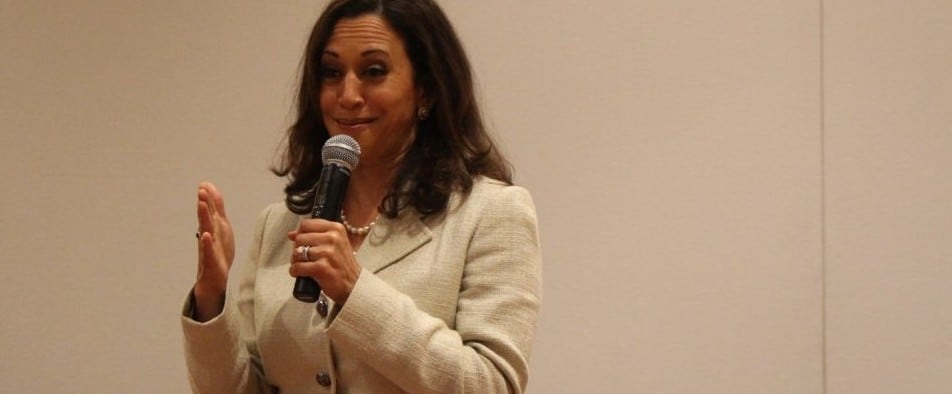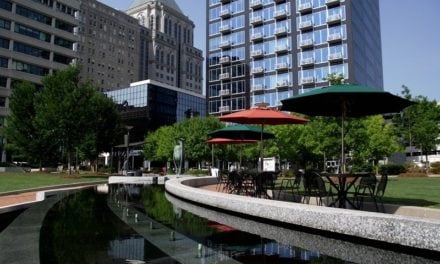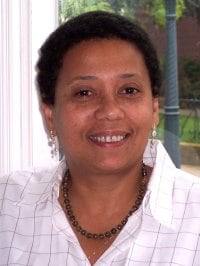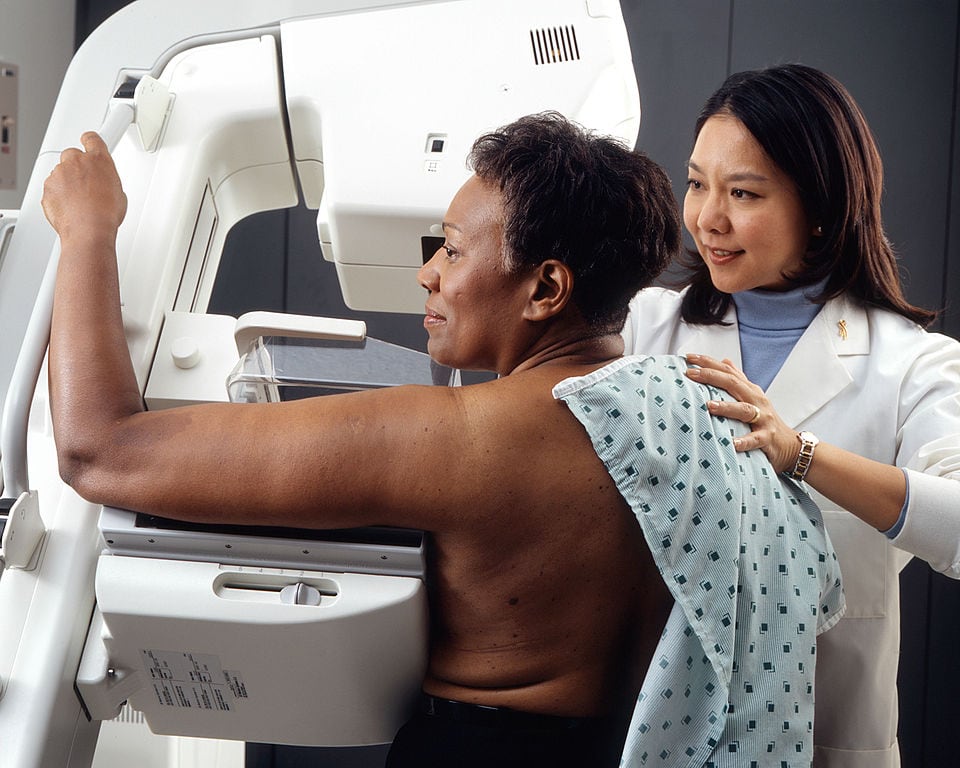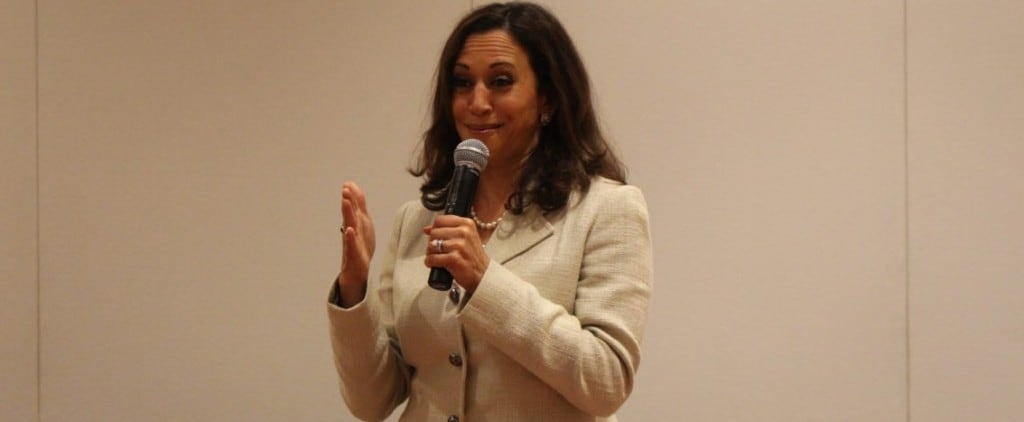
California Attorney General Kamala Harris has won the endorsement of President Obama and Vice President Biden in her bid to become the first black woman elected to the U.S. Senate in two decades and only the second ever. Her name has also come up as a potential U.S. Supreme Court nominee under a Hillary Clinton presidency. (Photo: Brelaun Douglas/Howard University News Service)
Kamala Harris, who is seeking to be the first black woman elected to the U.S. Senate in two decades and only the second ever, discussed the challenges that the country faces and reminded her supporters of their responsibilities as voters at a breakfast she hosted during the Democratic National Convention in Philadelphia.
“We have great challenges,” Harris said. “We have challenges in terms of our Senate race. We have the challenge in terms of what we will do to elect Hillary Rodman Clinton as the next president of these United States.”
Harris was elected Attorney General of California in 2010, making her the first female, the first African American and the first Asian American to hold the key position. (Her mother was born in India and her father in Jamaica.)
With the retirement of Sen. Barbara Boxer, Harris will face off in November for the open seat against fellow runner-up U.S. Rep. Loretta Sanchez, D-Calif., who is vying to be the first Latina in the Senate.
Harris received endorsements last week from President Barack Obama and Vice President Joseph Biden. Her platform focuses on criminal justice reform, early education and reducing student loan debt.
“Kamala Harris fights for us,” President Obama said last week. “That’s why I’m so proud to endorse her for United States Senator.”
“Kamala’s experience has taught her that if you’re going to give everybody a fair shot, you’ve got to take on the special interests that too often stand in the way of progress.”
Her name has also come up as a potential nominee for U.S. Supreme Court Justice under Hillary Clinton.
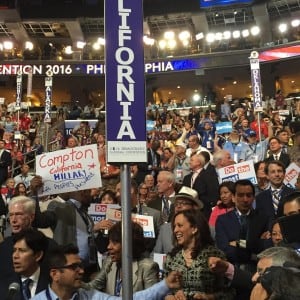
Kamala Harris with the California delegation at the Democratic National Convention in Philadelphia. (Photo: Kamala Harris/Instagram)
As Harris’ supporters sat listening, she discussed the previous week’s events at the Republican National Convention in Cleveland and their repercussions.
“We know what we saw and heard coming out of Cleveland last week,” she said. “It forced us to look into the mirror with a furrowed brow and say, ‘Who are we as a country?’”
“Having to ask that question has depressed a lot of us.” Harris pointed out that it’s OK and even necessary to ask this question and criticize what’s going on in the country.
“It’s OK to say we can be better,” she said. “It’s OK to say what we need to do to pass comprehensive immigration reform. What we need to do to reform the criminal justice system. What we still need to do to protect our LGBT brothers and sisters and their rights.
“It’s OK to say what we need to do to be better at protecting our environment and combatting climate change. This is the conversation we’re going to continue to have over the next 103 days.”
With 103 days until both the California Senate election and the presidential election, Harris said that she remains optimistic despite the challenges that the country faces.
“The reason I remain optimistic is because the answer is so clear,” she said. “As a phenomenal country I think it’s so poignant that this convention happened to be scheduled right here in Philadelphia, the place that in 1776 outlined in words the fundamental spirit of who we are as a country. A country that once recognized that we are all equal and will be treated that way. A country founded on the principles that say it is not who we are to engage in immigrant rhetoric.
“It is not who we are to deny entry based on the God that one worships,” Harris continued. “It is not who we are to engage in this xenophobic rhetoric that separates Americans and makes us think about us versus them. That is not who we are.”
Though she says it is OK to criticize what is not working, Harris said that it is not a reason to get discouraged.
“It is the very nature of this fight for civil rights that whatever we gain, it will not be permanent,” she said. “ So we must be vigilant, understanding that it will not be permanent. But let us not despair or be overwhelmed.”
Harris concluded with reminding her supporters that they have a duty and responsibility to vote and get those around them to vote.
“I am feeling good, but we have 103 days to go,” Harris said in a follow-up interview. “We have a lot of work to do to really feel good, because it’s about 103 days of getting out the vote.”
“Like the president said, ‘Don’t boo; vote!’ It’s about also understanding that people have died for our right to vote,” Harris said. “So we have to honor our ancestors; we have to honor those whose shoulders we stand upon.”
“Your vote is your voice, and your voice is your vote.”
Brelaun Douglas is a reporter for the Atlanta Voice and the Howard University News Service.

